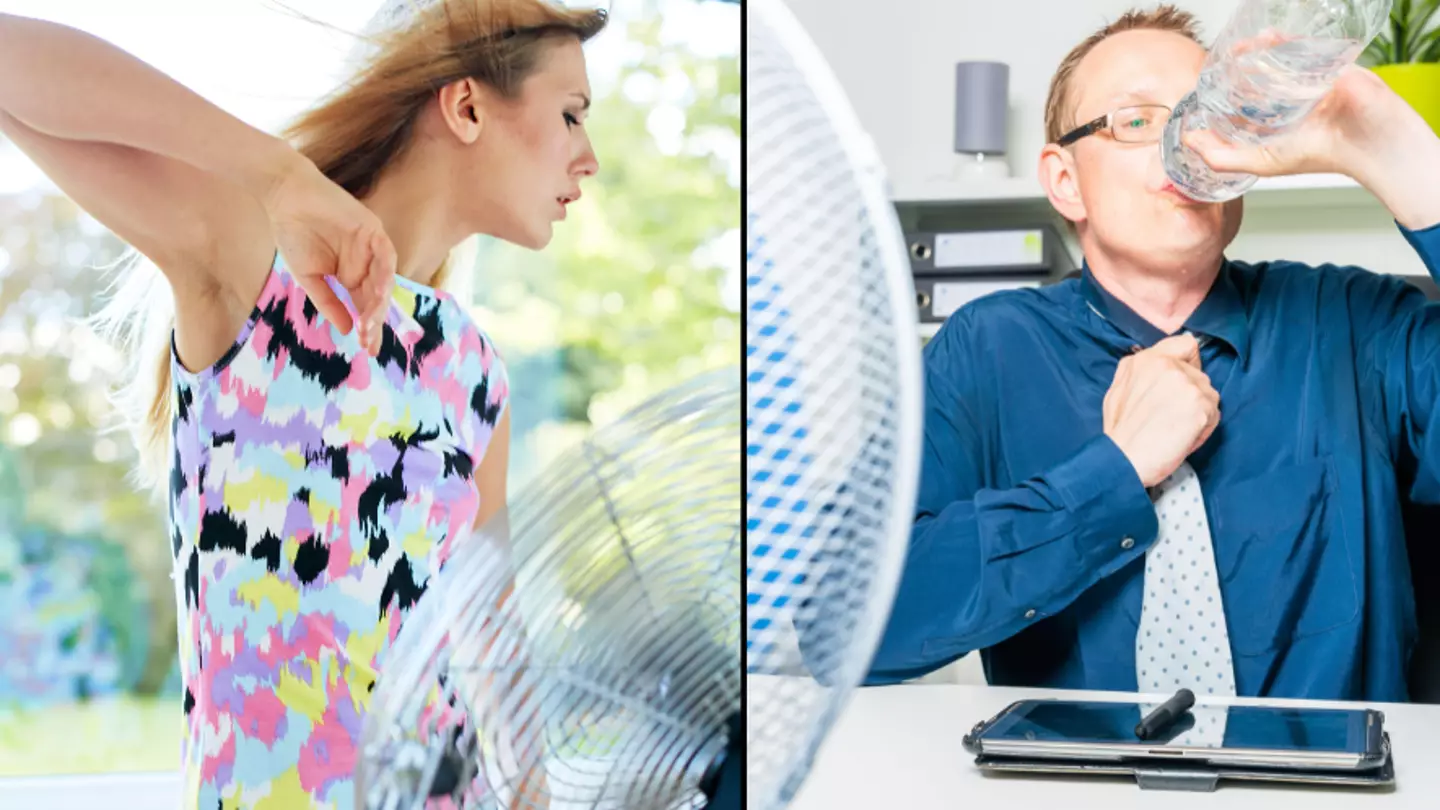
Government officials have called for Brits to be sent home from work if temperatures exceed 25C in the workplace.
Their request follows on from union bosses campaigning for a maximum working temperature as the country's heatwave is set to reach new heights next week.
The Met Office issued an upcoming red heat warning for the UK between Monday (18 July) and Tuesday (19 July), with large parts of the nation expected to hit high 30s and potentially 40C in some areas.
With this in mind, the Trades Union Congress (TUC) is setting out to protect workers against potentially 'unbearable and dangerous' conditions.
Advert
Shelly Asquith - Health, Safety and Wellbeing Officer at TUC - explained: "You might be surprised to know that while staff are not expected to work when the temperature gets a tad chilly and drops below 16°C (or 13°C if they are do physically demanding work) there are no similar restrictions for when the workplace becomes too hot.
"Working in hot weather can lead to dehydration, muscle cramps, rashes, fainting, and - in the most extreme cases - loss of consciousness. Outdoor workers are three times more likely to develop skin cancer."
The union has now launched a petition urging for a change in the law to ensure employers take action if temperatures in the workplace go above 24C, with measures including air conditioning and flexible hours.

"We would like ministers to introduce a new absolute maximum indoor temperature, set at 30°C (or 27°C for those doing strenuous jobs), to indicate when work should stop," added Shelly.
Amid calls for a maximum working temperature, Tory minister Kit Malthouse has now suggested bosses should allow their employees to work from home if possible over the next couple of days.
Per The Telegraph, he said: "Obviously the transport providers are messaging people that they should only travel if they really need to on Monday and Tuesday.
"Services are going to be significantly affected. The heat will affect rails, for example, so the trains have to run slower. There may be fewer services. People need to be on their guard for disruption.
"If they don't have to travel, this may be a moment to work from home."
TUC also offered a few steps employers can take to keep the workplace cool and safe, including providing sunscreen for outdoor workers, allowing flexible working in order to avoid the hottest parts of the day, climate-proofing premises (yes, that means air-con) and relaxing dress codes.
Beyond the daily graft, be sure to stay hydrated, avoid the heat as best you can and look out for those who are vulnerable in extreme weather.